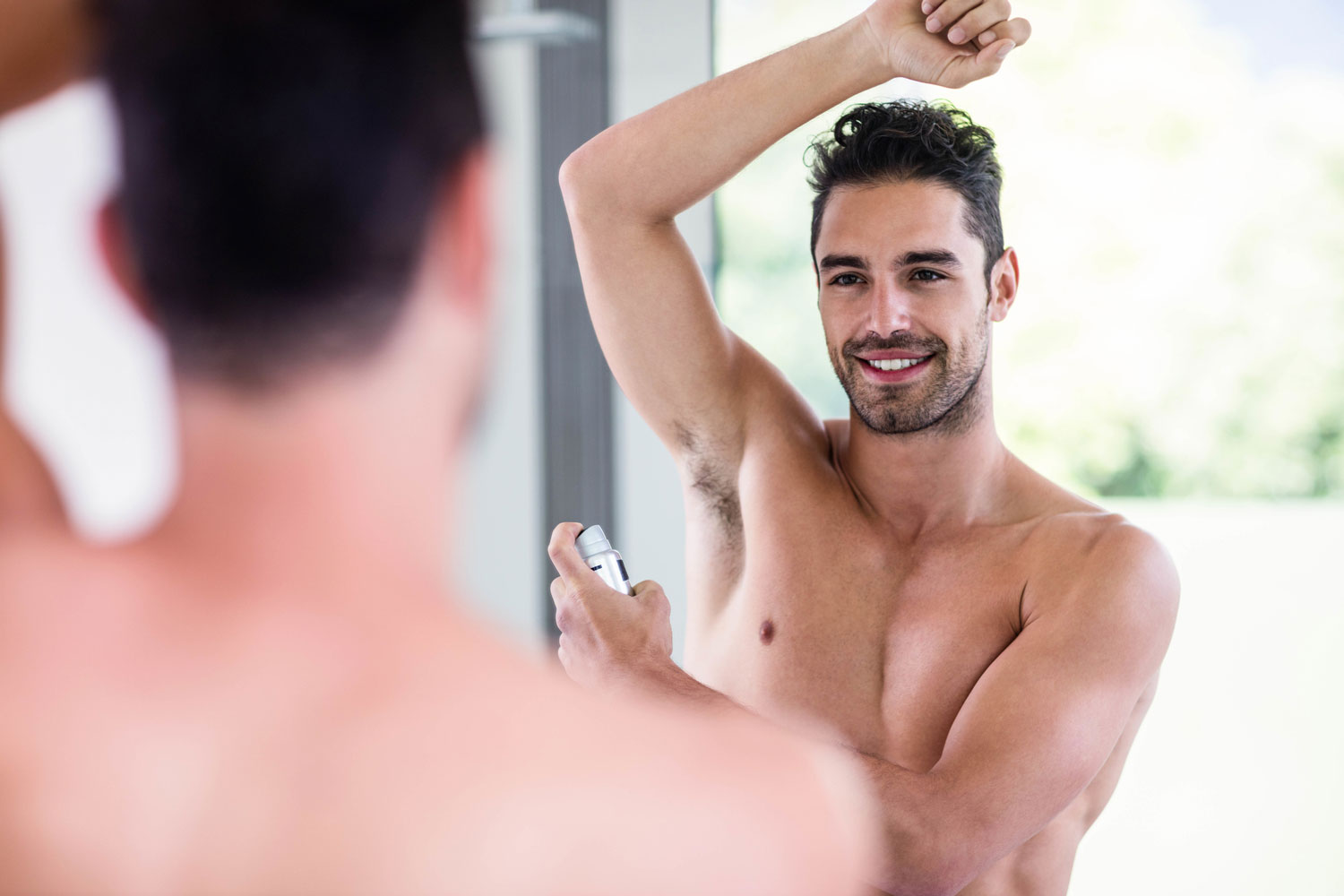One of the main causes of odour comes from perspiration. That means that one of your best solutions is to wear the right clothing. You want something that minimizes sweat in the first place, or that wicks it away from your body, where it can evaporate instead of festering on the skin.
For workouts, Khorasani prefers nylon since it wicks away sweat, dries quickly, breathes easily, and resists mildew. While polyester has many of the same qualities as nylon, be sure to wash it immediately (really, this is good practice for all workout gear), because polyester more easily accumulates bacteria.
For everyday wear, this is when cotton is your best bet. “Lightweight cotton is very breathable and allows some airflow to help dry out dampness,” Dr. Khorasani says. On hot days, though, remember that the cotton will absorb moisture instead of repel it. But there are other fabric options out there if you don’t want to rely on cotton. “Another good natural fabric is bamboo,” Dr. Khorasani says. “It is high-quality, ultrasoft, breathable, and absorbent. It also has more resistance to odor, mold, mildew, and bacteria, even after multiple washings.”
Dressing up? Consider merino wool, which naturally wicks away sweat. Dr. Khorasani says it both breathes well and is a heat insulator, and it fends off bacteria better than synthetic materials.
“Guys should be looking for an antiperspirant since deodorants only reduce odor-causing bacteria and do not reduce perspiration (which itself causes more odor),” Dr. Khorasani says. “If a typical antiperspirant is not benefitting a patient, I recommend a stronger over-the-counter antiperspirant such as Certain Dri, Gillette Clinical, or Secret Clinical Strength. These have a higher concentration of aluminum compounds typically.”
Apply it in the morning, and again before bed to clog the sweat glands while you sleep—while they’re less active—and cannot be washed away by sweat immediately when you apply it. Dr. Khorasani adds that some of these sweat-preventing deodorants contain silica or propylene glycol, which can irritate the skin. He also notes that any such products with fragrance can increase the odds of a rash.
Related: Do You Train Hard and Eat Big? Here’s Why Your Farts Smell Like Death
This one’s a no-brainer but that doesn’t make it any less important. Dr. Khorasani points to four sections of your body that most actively lead to odor: the armpits, groin, feet, and scalp.
The first two—the armpits and groin—house the majority of the body’s apocrine glands. These glands are responsible for most of the odorous sweat on the body, and are activated during puberty. You can minimize the odor in these parts by showering daily, and immediately following any intense sweating.
Wash your feet every day, too: They don’t possess the same power to generate odor on their own, but when they dwell inside your socks and shoes (a dark, damp environment, if ever there was one), it’s a recipe for fungus and bacteria and can lead to a pungent bite. You can minimize the threat of odor and oddities with a foot cream or powder, says Dr. Khorasani.
Finally, dandruff can also lead to additional odor: All that dead skin starts to rot on your scalp and produces a subtle funk. A simple deployment of dandruff-fighting shampoo and gentle styling products will remedy the problem.
Getting rid of that extra hair can help minimize perspiration—especially in the armpits and groin. These areas can remain moist all day, largely because your hair is creating a dark, poorly ventilated nesting ground. Similarly, wearing looser clothing will also help reduce trapped sweat, says Dr. Khorasani.
This article originally appeared on Men’s Health.














